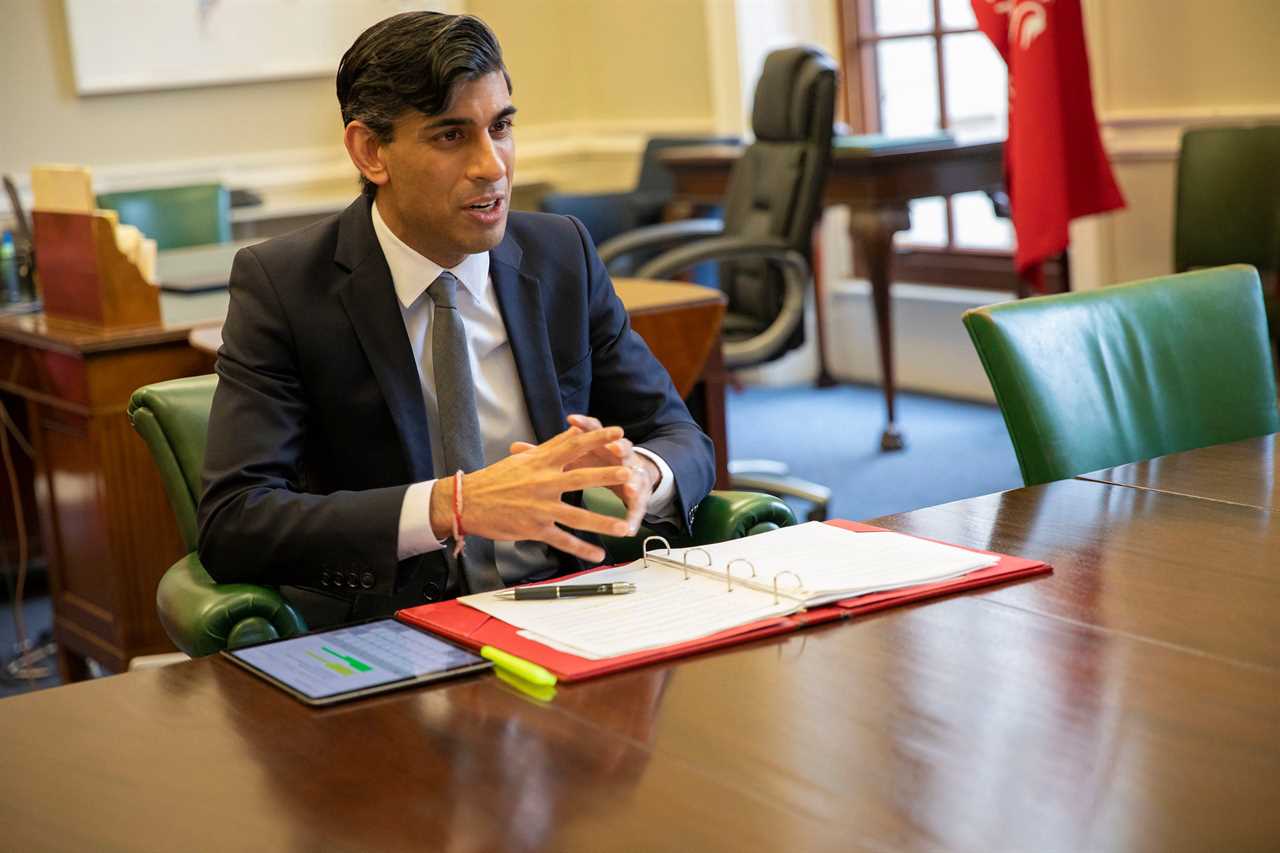RISHI Sunak is laying the ground for tax rises in March after warning Tory MPs it’s time to wean the country off the “magic money tree”.
The Chancellor is preparing to hike levies on businesses to raise up to an extra £14bn to repair Britain’s battered public finances.

Read our coronavirus live blog for the latest news & updates

His planned move comes after new figures showed UK borrowing hit its highest December level on record last month.
Mr Sunak said today: “Since the start of the pandemic we’ve invested over £280 billion to protect jobs and livelihoods across the UK and support our economy and public services.
“This has clearly been the fiscally responsible thing to do. But as I’ve said before, once our economy begins to recover, we should look to return the public finances to a more sustainable footing.”
He wants to put “clear blue water” between the Conservatives and Labour on handling the economy by reining in the ballooning debt.
In private meetings he has told Tory MPs that the budget in March will be the time to start rebalancing the nation’s finances.
One told the FT: “He wants to wean us off the magic money tree.”
It came as:
- A Cabinet minister warned the lockdown could last until summer as Tory MPs demanded a March 8 plan for reopening
- The PM was set to tell the nation at a 5pm press conference there’s “a way to go” to defeat the pandemic
- Ministers didn’t rule out closing Britain’s borders completely to keep out mutant strains of the virus
The Chancellor is said to be planning a huge increase in corporation tax in March, which could see rates rise from 19% to as high as 23%.
But he won’t pull the rug from underneath spending on the pandemic response, maintaining support to the economy requiring billions in extra spending.
He is then expected to introduce further tax rises in a second budget in November, to come into effect once the country has reopened.
An ally of the Chancellor said: “Rishi believes there needs to be clear blue water between the Conservative party and Labour.
“There’s not much point to the Conservative party if we don’t want to put the public finances back on a sound footing.”
But right-of-centre think tank the Adam Smith Institute warned the Chancellor off “passing the buck” with tax rises on Brits.
They said: “Promises of tax rises in the near future while restrictions on private businesses operating remain in place is a slap in the face of business.
“If Sunak wants to look at economising, it is government spending he should look to reduce — not promising an increase in the tax burden on British businesses.
“Tax rises are austerity, one that is paid for by consumers. It is the ultimate case of the Chancellor passing the buck onto ordinary Britons.”
The move comes after Mr Sunak sparked a showdown with Red Wall Tories over his plan not to extend the boost to Universal Credit beyond the end of March.
He has warned them the cost of prolonging the scheme is the equivalent to slapping 1p on income tax plus 5p per litre on fuel duty.
The Treasury declined to comment.
Figures from the Office for National Statistics show government borrowing hit a whopping £34.1 billion last month.
The number, which is the third highest for any single month since records began in 1993, was fuelled by the cost of Coronavirus support measures.
It takes borrowing for this year to a massive £270.8 billion, which is £212.7 billion more than just a year ago.
And the independent Office for Budget Responsibility reckons that figure could hit £393.5bn by the end of the financial year in March.
Economists said the dire statistics showed businesses still need supporting through the pandemic.
Paul Dales, chief UK economist at Capital Economics, said: “The Chancellor should ensure that is the main focus of his Budget on 3 March and not a desire to reduce the budget deficit by raising taxes.”






